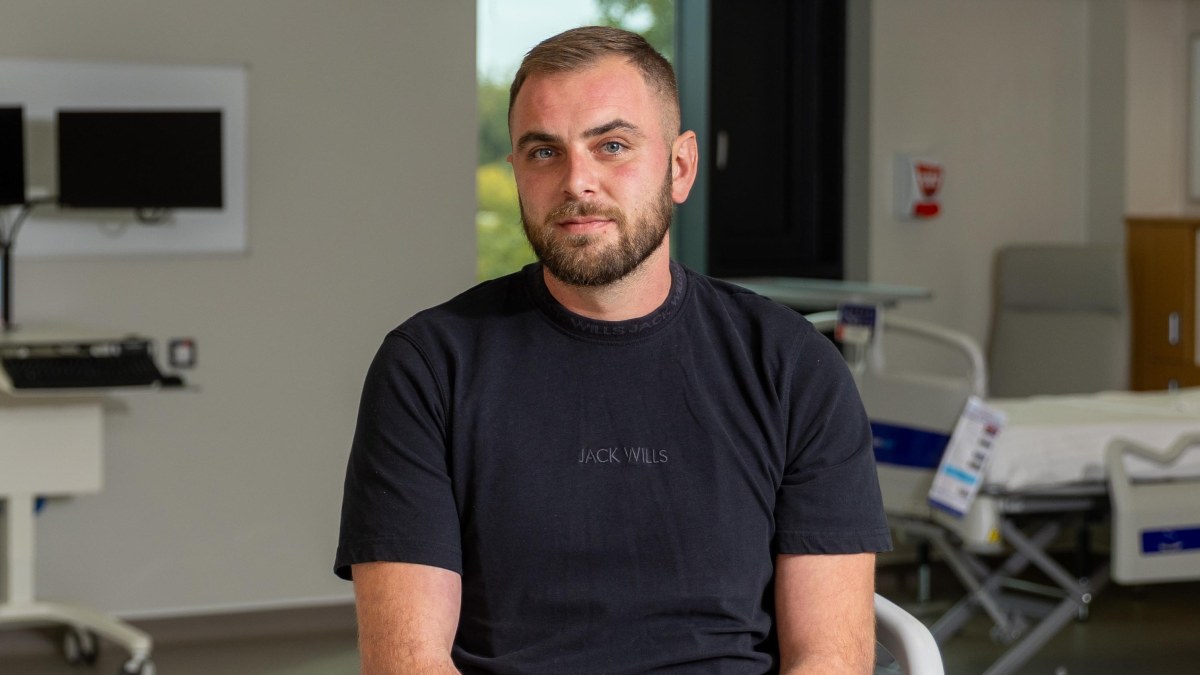For three weeks Luke Pickering was forced to sleep with his eyes open after a rare complication from an infection left him paralysed.
The 32-year-old father of two was “locked in”, unable to move but fully conscious. “When you’re lying in hospital like that, it’s a very dark place,” he said. “Very dark.”
At several points doctors feared he might not pull through after being admitted to hospital in November 2023, where he remained for 93 days. But thanks to the intensive rehabilitation he was given, Pickering has returned to full health and is back working as a mechanic.
Not everyone in his situation is so lucky. Six out of ten patients who need NHS rehab do not receive it. This condemns thousands to a life without work and on benefits.
That could all change after a state-of-the-art £105 million national rehabilitation hospital near Nottingham opens its doors next week. The NHS-run facility will treat 750 patients a year who have suffered spinal cord injuries, brain damage, amputations and other conditions.
The 70-bed hospital is opening on time and within budget — aiming to revolutionise rehab services in the NHS and contribute an estimated £3.3 billion to the British economy over its 65-year lease by getting more patients back on their feet and back into work. The average cost of a stay will be about £39,000, but modelling suggests it will save £500,000 per patient.
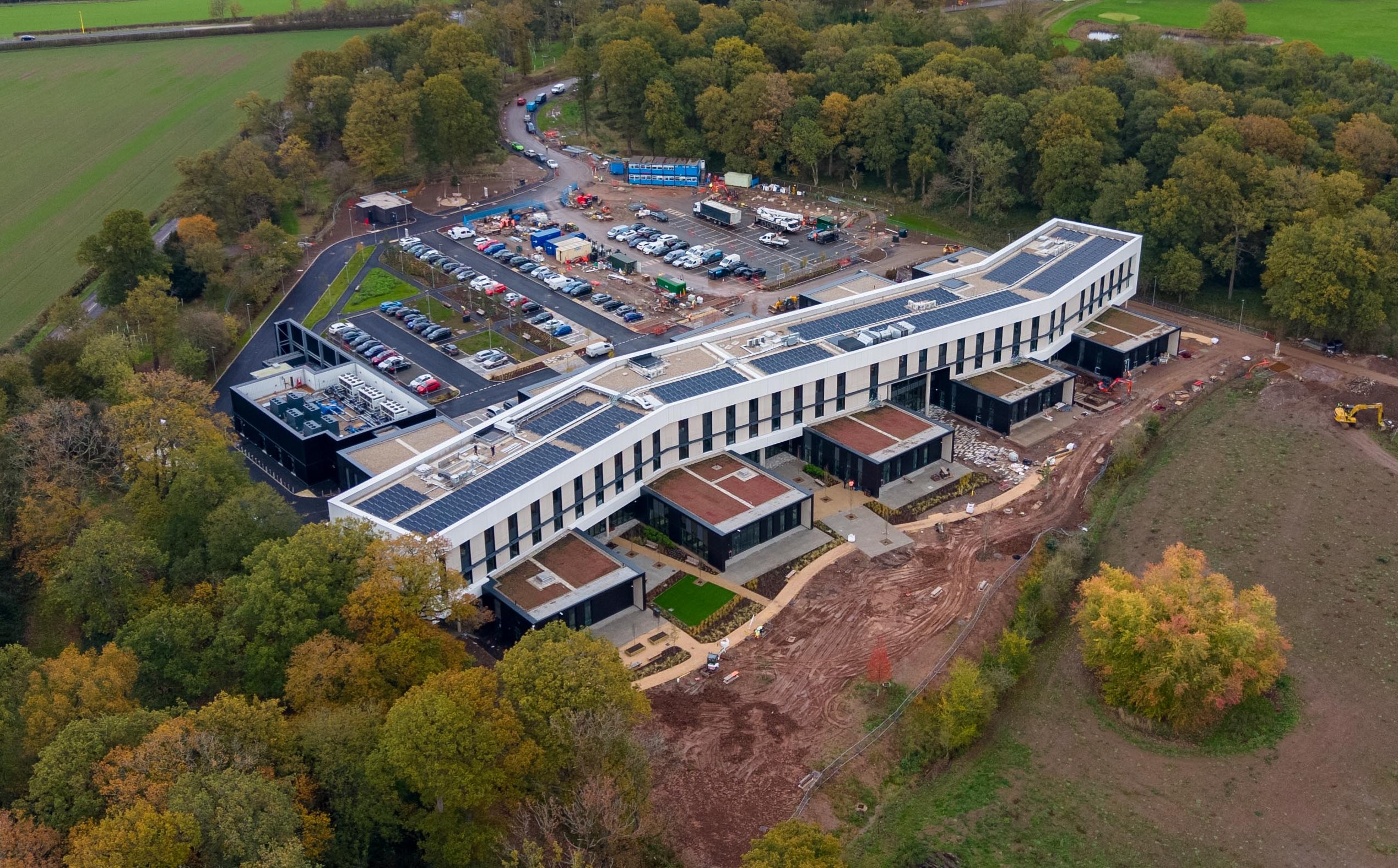
The £105 million National Rehabilitation Centre in Loughborough will open next week
TERRY HARRIS FOR THE SUNDAY TIMES
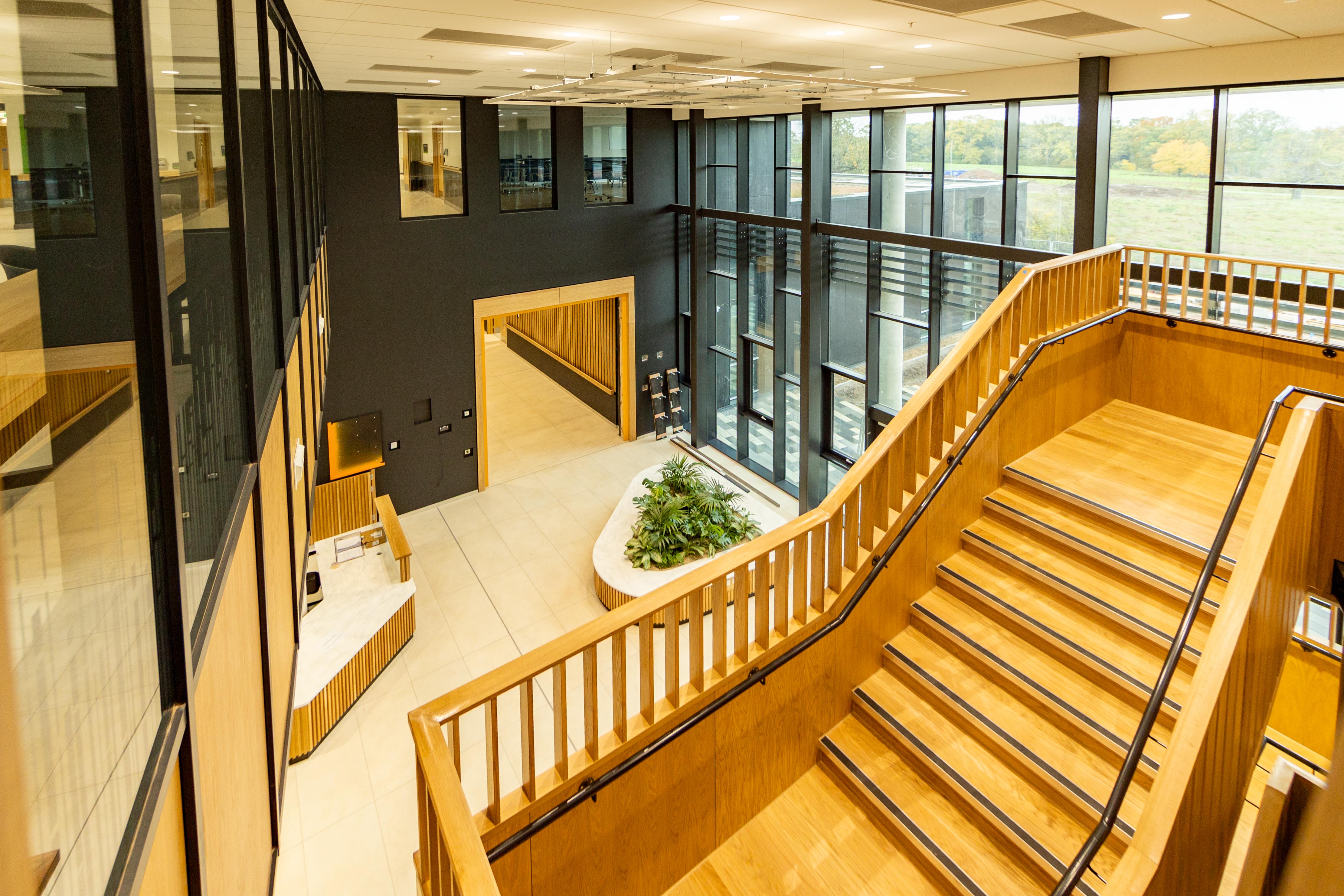
TERRY HARRIS FOR THE SUNDAY TIMES
Miriam Duffy, the director of the National Rehabilitation Centre (NRC) and a physiotherapist who has been working on the project for a decade, said: “We can’t wait to open. It’s going to make such a difference. This is just the start, because now we’ve got to operate it, we’ve got to demonstrate that it works. The real benefit is when we roll out the model of care across the country.”
Set in the grounds of the Stanford Hall estate, the NRC was made possible thanks to the generosity of the late 6th Duke of Westminster, who along with other donors raised £300 million to buy the estate.
A defence rehab hospital was opened on the same grounds in 2018, and will share facilities with the NHS to help improve its results. Typically, 80 per cent of soldiers getting rehab go back into work, with the NHS managing only 35 per cent.
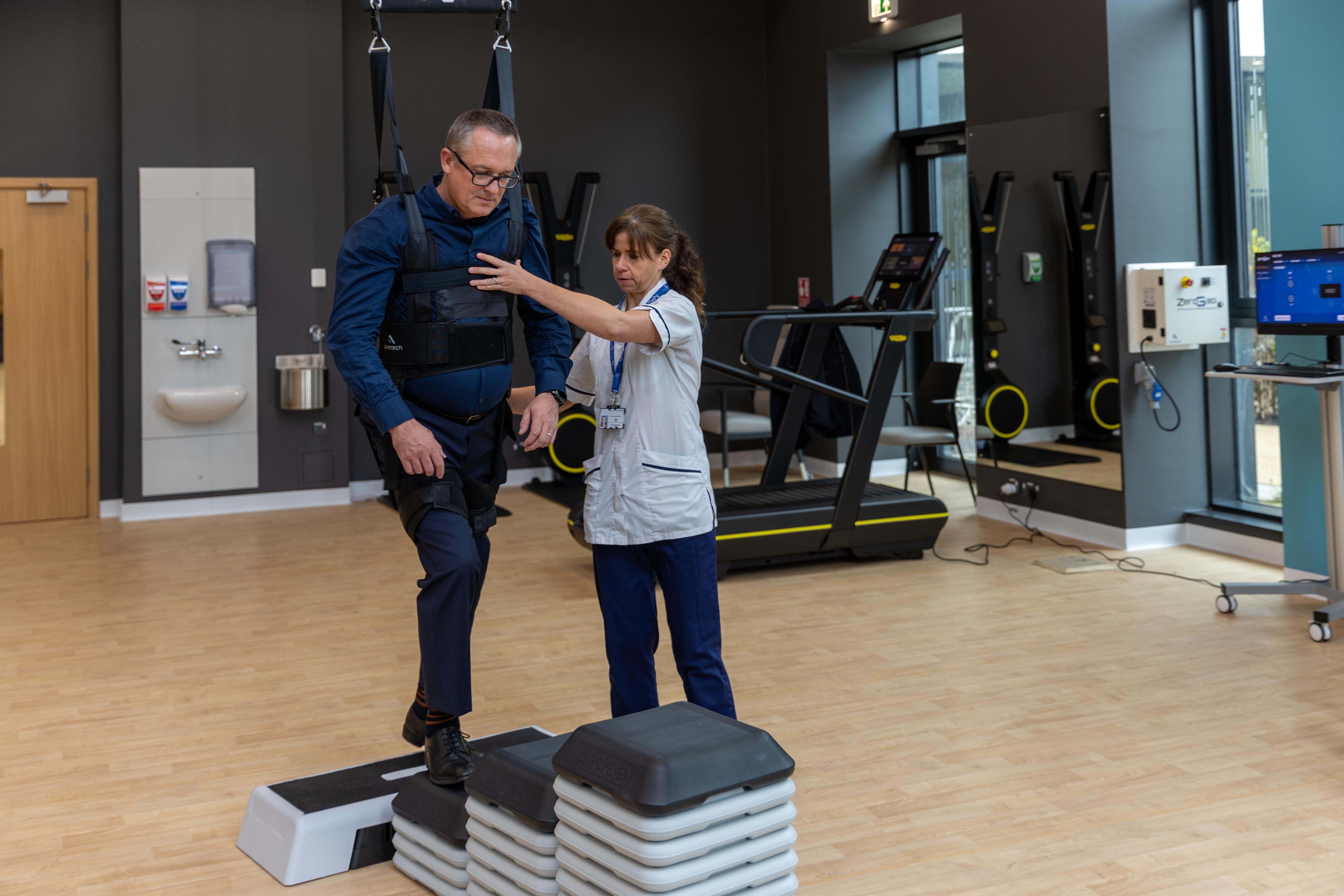
Alison Wildt, the Nottingham University Hospitals innovation lead, demonstrates the 3D Lift on Alex Jones, the director of the medical device company Ectron
TERRY HARRIS FOR THE SUNDAY TIMES
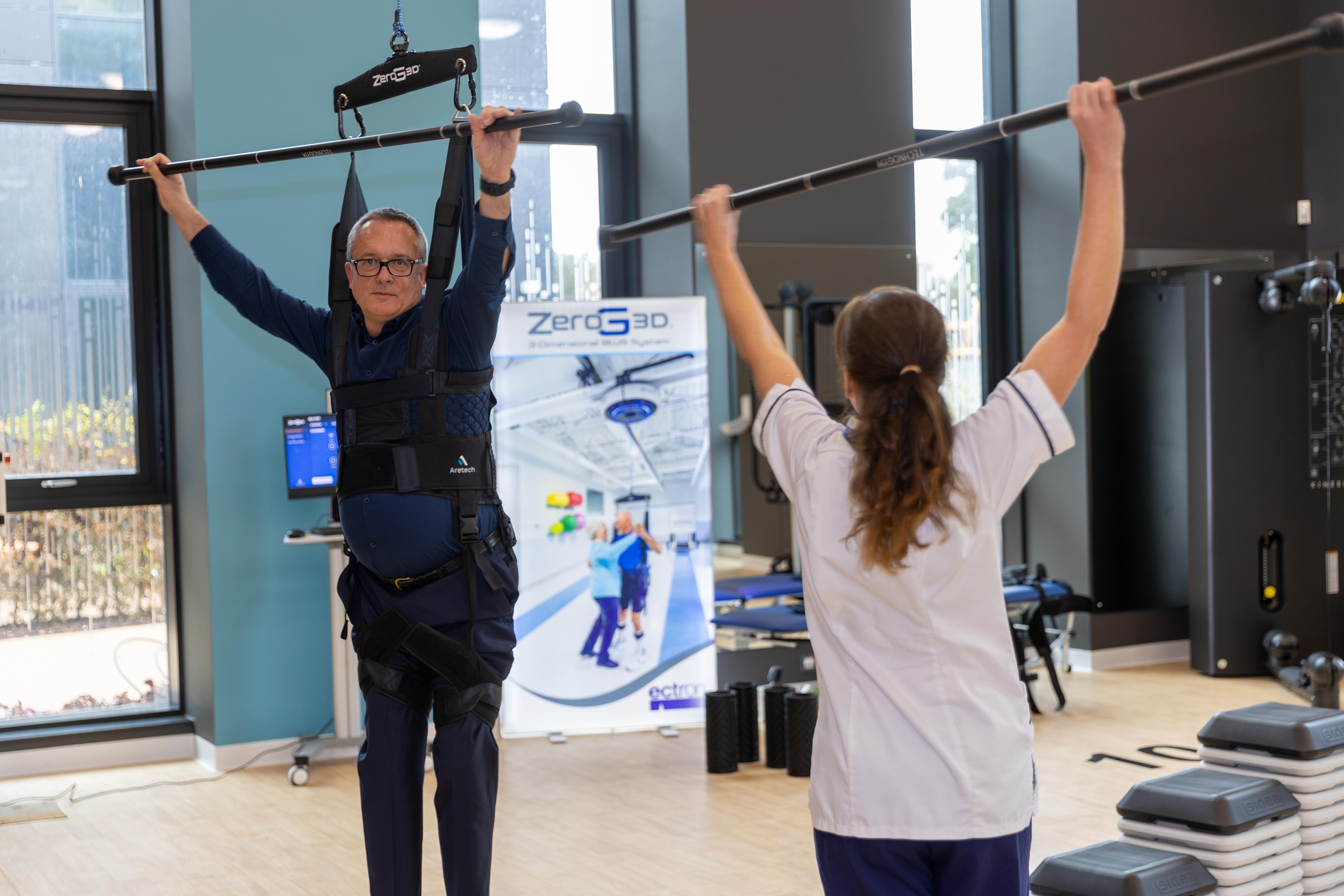
TERRY HARRIS FOR THE SUNDAY TIMES
The government’s new hospitals programme provided £105 million to build the NHS facility. Construction started in 2023.
On November 11, the first 18 patients will move in from the dilapidated Linden Lodge rehab centre in Nottingham. It was there that Pickering had to learn to walk again after developing Guillain-Barré syndrome, a rare complication from a viral infection that causes the body’s immune response to attack its own nervous system.
What began as pins and needles soon developed into something more serious and Pickering was persuaded to go to hospital by his partner. “I just felt a little bit weak on my legs,” he said. “Within three weeks I was 95 per cent paralysed.”
The NRC will admit patients like Pickering for a few weeks or months at a time for intensive treatment.
The building has been designed as a therapeutic environment with huge amounts of natural light, wood and modern rooms. It will operate as a silent hospital, with no alarms and noisy monitoring equipment. Patients will have bedside technology to communicate with staff and plan their day.
More than 200 NHS staff will be on hand to help get patients mobile again but the NRC will not use porters, instead encouraging patients to move around themselves. It will have several gyms and advanced technology including Europe’s first 360-degree hoist, a robotic bodyweight support system that allows patients to move freely in any direction without the risk of falling.
Families travelling long distances will be able to stay overnight and patients nearing discharge have the option of self-contained rehabilitation flats, where they can practise living independently with their family.

Miriam Duffy
TERRY HARRIS FOR THE SUNDAY TIMES
For Duffy, 54, the centre is a major leap forward in NHS rehabilitation services which she said was failing thousands. “It’s a capacity gap,” she explained. “We don’t have nearly enough specialist inpatient rehabilitation beds — in this region alone we are 173 short.
“For people who don’t have rehabilitation, 60 per cent are readmitted back into hospital within six months due to some form of complications. So they’re back through the emergency department and that is completely avoidable.”
She said the NRC had developed a new model of care, drawn from evidence from the best hospitals around the world, to deliver major improvements. “If somebody is waiting 45 days, as they do often at the moment, that’s a significant amount of time that people are maybe not being positioned properly, not being moved correctly, and they’re learning bad habits,” she said.
Duffy added she was “utterly convinced” the NRC would work, saying: “We absolutely know from evidence around the world that early intervention gives better outcomes.”
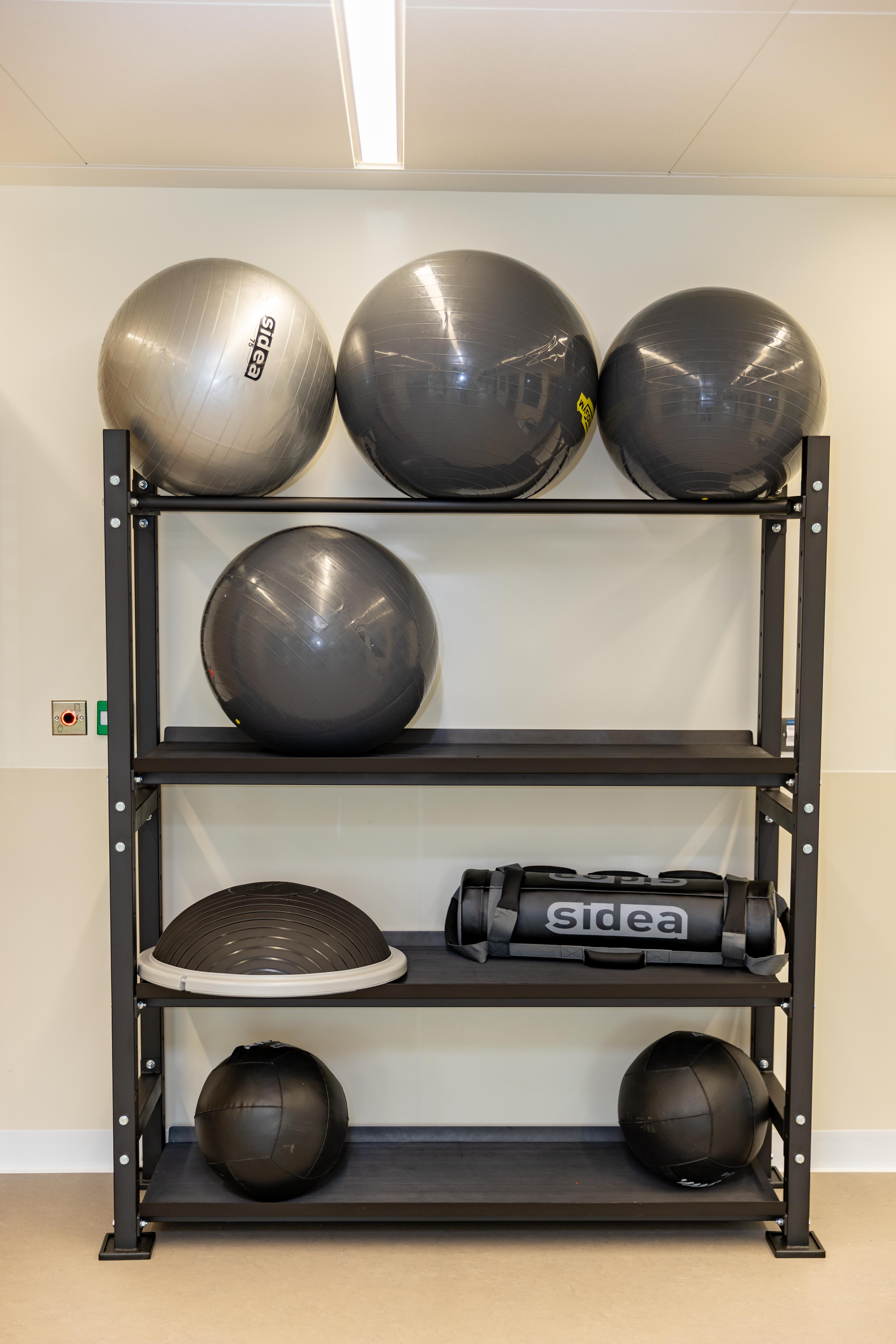
TERRY HARRIS FOR THE SUNDAY TIMES
Highlighting the potential for the nation if the approach is replicated elsewhere, Duffy said: “The economic benefits that we modelled for the business case says for the 750 [patients a year] in this centre alone we would put £3.3 billion back into the economy.”
The NRC will also have a dedicated research space and an academy to train the rehabilitation staff of the future. Duffy, who wants to see a “hub and spoke” model across the NHS with the NRC at the centre, said: “It’s ready to go. It’s a blueprint for others to follow.”
Pickering, who is now back working and enjoying time with his son Lucas, four, and daughter Ivy, two, cannot thank the NHS enough. “I believe the intensity that I was given so early on was the key to recovery,” he said. “The longer you’d have left it, the longer things would have taken to repair themselves.”
He now volunteers as a patient ambassador, visiting those undergoing treatment and giving them hope that they too can recover and get their lives back.
Improving rehabilitation services is a key part of the government’s ten-year-plan. Karin Smyth, the health minister, said: “The National Rehabilitation Centre is a glimpse of the modern NHS we’re building — cutting edge, community-focused and designed around people’s lives, not just their illnesses.”

